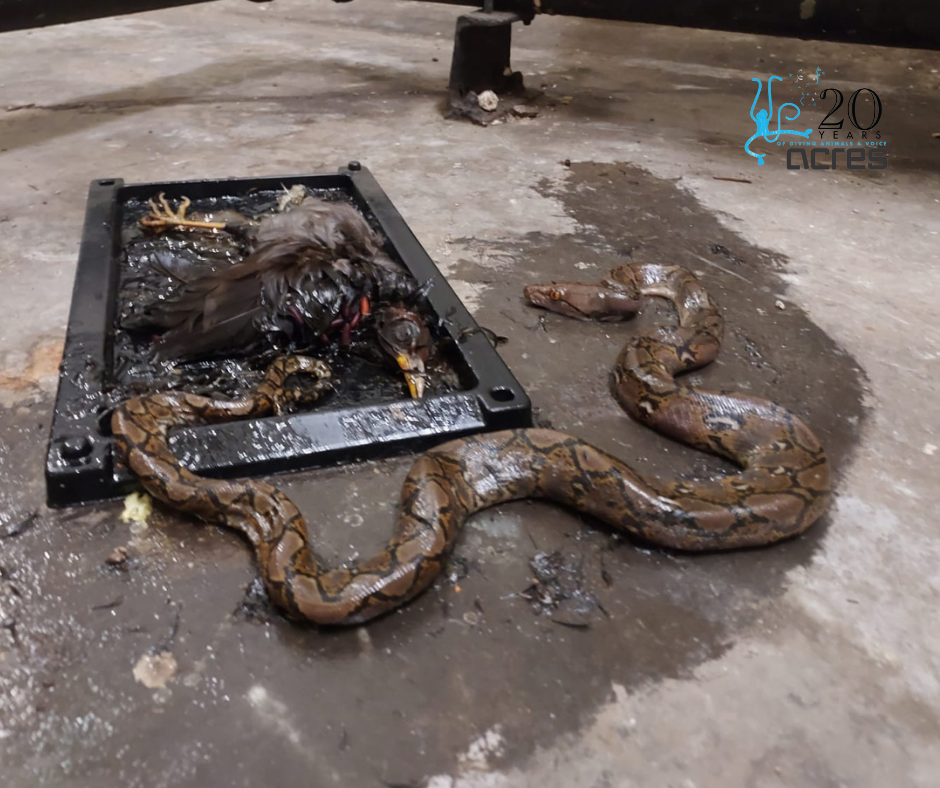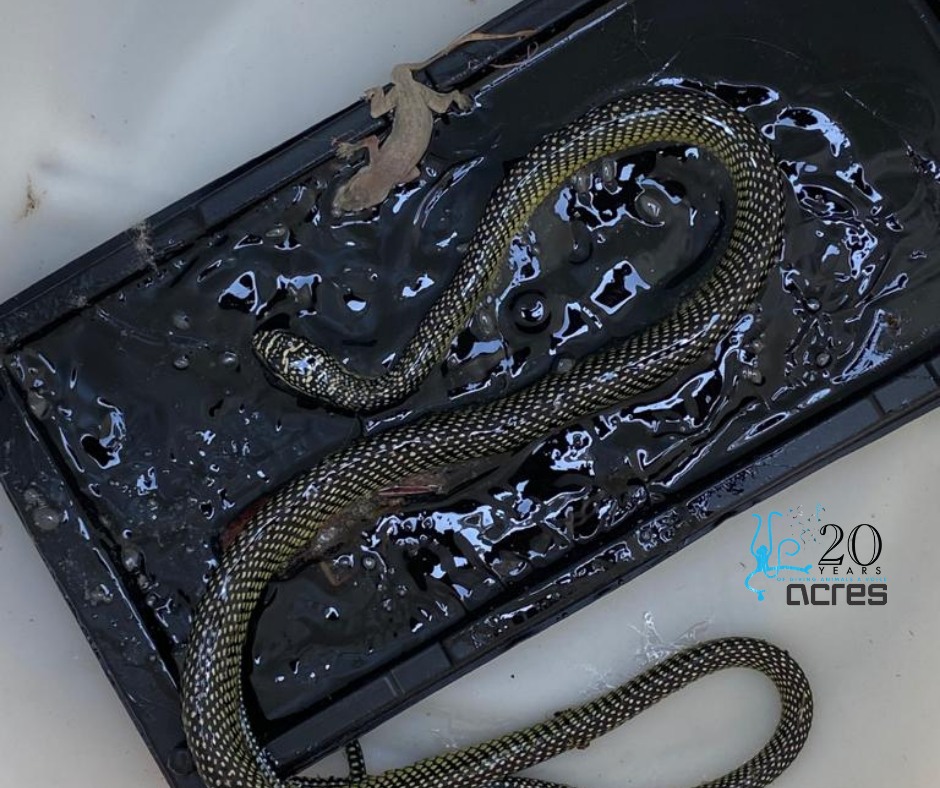ACRES Discourages The Use Of Glue Traps Although It’s Cheaper
Glue traps, while inexpensive, are considered unethical ways to trap pests and rodents by some animal rights’ organisations around the world.
Closer to home, though anyone can utilise these traps in Singapore, ACRES will usually be called upon to clean up afterwards.
As ACRES has encountered countless glue traps over the years, the wildlife rescue organisation recently issued an advisory to curb the use of them, and to stop this “unethical” practice.
In a Facebook post, they alluded to the cruelty and downsides of using such traps, and provided alternative ways of preventing pests instead.
Glue traps catch more than just rodents
On Friday (17 Dec), ACRES took to Facebook to share an advisory about the usage of glue traps to reduce the rodent population in Singapore.
They describe that although these traps are legal, easily available and affordable, that doesn’t make the practice “ethical”.
Although they understand the public’s need for inexpensive ways to get rid of rodents, ACRES points out that there’s something fundamentally wrong with using them.
Letting nature take its course, allowing predators such as snakes to naturally hunt for rodents, should be the norm but ACRES mentions that they regularly go around the island relocating these creatures instead.
So, in its place, people have resorted to using glue traps to stop the rodent population.
Ironically, these traps not only entrap rodents but also snakes, birds and other animals that fall out of the rodent category.
All creatures pay the price for cheap glue traps
With that in mind, ACRES implores the public to stop using them, providing 3 main reasons to support that notion:
- Glue traps are indiscriminate
- Glue traps are cruel
- Glue traps don’t address the root cause of the problem
They added that animals who’re stuck on traps often suffer from hypothermia, stress, dehydration & starvation, before their death.
Have some heart for the animals
Although changing our habits is difficult, we can start the ball rolling by doing our part to remember that even if we’re attempting to curb pests, we should also have some empathy for our animals.
As advocates for the humane treatment of animals, we echo ACRES’ sentiment that “cheap solutions” are only perceived as affordable because we did not factor in the price that innocent animals are paying.
Regardless of whether they are rodents or not, we think no creature should have to suffer terribly before meeting their demise.
Have news you must share? Get in touch with us via email at news@mustsharenews.com.
Featured image adapted from ACRES on Facebook & Facebook.

Drop us your email so you won't miss the latest news.












